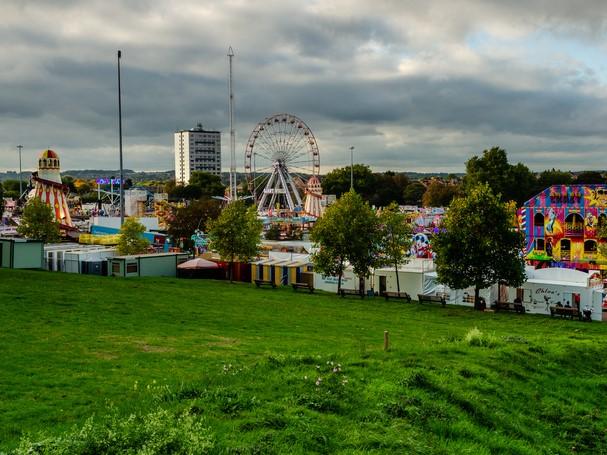Nottingham Goose Fair only cancelled for bubonic plague and world wars is scrapped due to coronavirus
‘If we did go ahead and, three or four weeks later, we find it had caused a spike, that would be a terrible thing’

Your support helps us to tell the story
From reproductive rights to climate change to Big Tech, The Independent is on the ground when the story is developing. Whether it's investigating the financials of Elon Musk's pro-Trump PAC or producing our latest documentary, 'The A Word', which shines a light on the American women fighting for reproductive rights, we know how important it is to parse out the facts from the messaging.
At such a critical moment in US history, we need reporters on the ground. Your donation allows us to keep sending journalists to speak to both sides of the story.
The Independent is trusted by Americans across the entire political spectrum. And unlike many other quality news outlets, we choose not to lock Americans out of our reporting and analysis with paywalls. We believe quality journalism should be available to everyone, paid for by those who can afford it.
Your support makes all the difference.It is an annual carnival which, in its 700-year history has been cancelled just once during peace time – because of the 1646 bubonic plague.
Now, almost four centuries on, coronavirus has wiped out Nottingham's legendary Goose Fair for only a second time when war isn’t raging.
The October extravaganza – which attracts 420,000 people to its 500 temporary amusements each year – has been called off amid fears it could result in an explosion of Covid-19 cases.
The five-day bash is so beloved in the East Midlands city and considered of such economic importance that, while it was called off in the first four years of World War Two, it was reinstated in 1943 even as hostilities continued.
But Nottingham City Council has now announced this year’s event would be pulled after a range of other options were debated and dismissed.
Dave Trimble, cabinet member for leisure and culture, said in a statement on Friday: “If we did go ahead and, three or four weeks later, we find the fair caused a spike, that would be a terrible thing."
He added it was not a decision the council had taken lightly.
“We know how well-loved the event is and what a boost it would have been for morale in the city,” he said. “Unfortunately, due to its scale and popularity, in the end this was not possible.”
Although government guidelines now allow for fairs to take place, the council and Showmen's Guild of Great Britain – which runs the event – say cancelling was the only suitable option.
Both a reduced capacity of just 25,000 people and a longer 10-day run were considered but even, with such smaller numbers, it was felt that social distancing would be too difficult to ensure both at the Forest Recreation Ground venue itself and, crucially, for families travelling there on public transport.
William Percival, chair of the Showmen’s Guild in Derby and Nottingham, said: “We are obviously disappointed that the Goose Fair can’t proceed as planned this year.
“As with other sections of the entertainment industry, fairground operators have been hit hard by the pandemic, with many not operating at all during this year.”
Although the exact year when the Goose Fair began is unknown, it is believed to date back to at least 1284 when a royal charter was granted by King Edward I that referred to a city fair in Nottingham.
The name comes from its origins as a livestock event when thousands of geese would be brought into the city from Lincoln.
Join our commenting forum
Join thought-provoking conversations, follow other Independent readers and see their replies
Comments